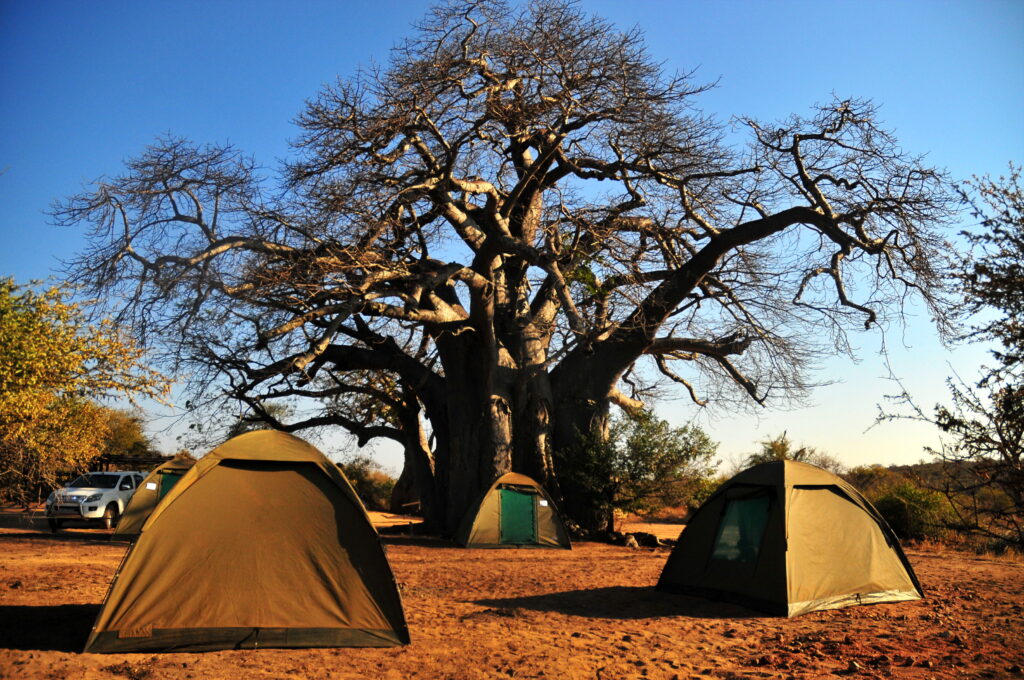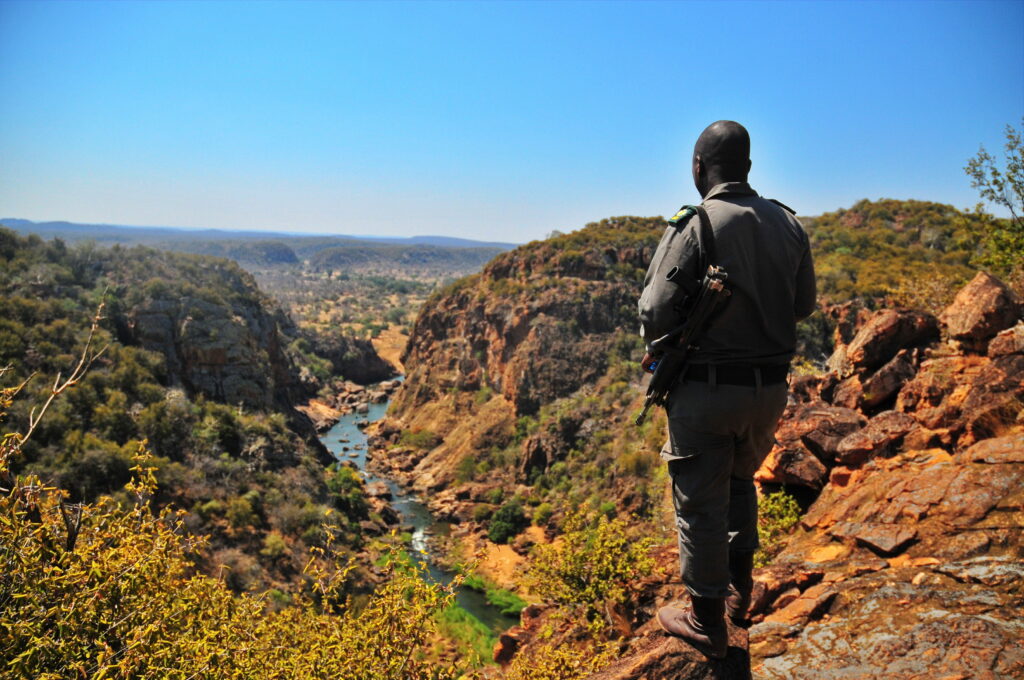WE were meant to explore one of the tough hiking trails that form part of the attractions at the Makuya Nature Reserve in far north eastern Limpopo on a not so late Saturday morning.
Temperatures soared into the mid 30s on our Friday afternoon arrival, leaving us soaked in sweat. The night was warm with a clear sky. Countless stars illuminated the rugged landscape, with not a single cloud in sight.
Someone who knows the secrets of mother nature advised this was a sign the next day, Saturday, was going to be hell on earth. A quick check with the online weatherman confirmed the dire warnings. The temperature would be nearing 40 degrees Celcius by late morning.

Even by the time the sun rose above the distant mountains that form the international borders with Mozambique and Zimbabwe in the north east, it was clear a swelteringly hot day lay ahead.
It sure wasn’t going to be a day for adventure seekers, especially a bunch of superbly unfit journalists to be walking about in the sun. An air of relief swept across our group when it was announced the hike had been cancelled due to the extreme heat.
We were a group of journalists and some government agency staff on an adventure to the park as part of the Limpopo Department of Economic Development, Environment and Tourism’s (Ledet) Tourism Month activities.
Instead we hopped onto 4×4 game vehicles and headed east. But in the end I was left wondering if perhaps the hike on foot wouldn’t have been better.
The drive turned out to be a joint twisting, muscle stretching bumpy ride on the precipitous terrain. We twisted through rough paths, ascended jagged hills while having fun at constantly dodging tree branches that sought to prick us from our seats.

Makuya Nature Reserve is big five country. But we saw not a single animal on the drive. It seemed even the game had taken the advice of the weatherman and sought refuge from the broiling sun. But the sight of massive baobab trees that dot most of the landscape made up for the rough drive.
After what seemed like a lifetime our entourage stopped on an open clearing high up in the hills. After a short walk through dense vegetation under the care of a ranger armed with a rifle, just in case, we emerged into the open onto the edge of a rocky mountain about 1.5km above sea level.
A spectactular sight, the Luvhuvu river meandering through a gorge hundreds of metres long and wide, lay down below. Beyond the gorge lush vegetation stretched as far as the eye can see into the Kruger and towards Mozambique and Zimbabwe.

The gorge is one of the attractions to this community run 16 000 hectare reserve which borders the Kruger National Park.
The land for the reserve is leased by Ledet from the Makuya, Mutele, and Mphaphuli traditional authorities. It is one of 43 provincial nature reserves managed by Ledet, some like Makuya, in collaboration with communities.
The reserve borders the Kruger in the east and rural village settlements to the north, west and south. It offers among its attractions, tented accommodation, bungalows perched high up on the hills overlooking the spectactular Luvuvhu river, guided hikes, game drives and picnic facilities. It is also reputed to be the only habitat to tigersfish in this part of the province.
Ledet MEC Rodgers Monama said they have embarked on an intensive programme to market, including through the use of social media influencers and to commercialise the nature reserves through concession partnerships.
He said they have also poured funds into renovating infrastructure on some of the reserves which was dilapidated. Monama said communities like Makuya who are living close to the parks “need to be part of the eco-system so that we don’t experience unnceseary vandalism.”
A 2021 research paper interrogating the relationship between communities living adjacent to the Kruger National Park noted that such communities living near game parks face daily challenges including coming into contact with wild animals that escape from the facilities and destruction of crops and property.

“Hostility and acrimony often punctuate the relationship between protected areas and the host community in many tourism destinations, such as national parks,” the paper titled Successes and Challenges in Sustainable Development Goals Localisation for Host Communities around Kruger National Park (Mabibibi, Dube, Thwala) revealed.
“When animals encroach on human space, this often results in the destruction of property, crops, injuries and sometimes loss of human life, much to the annoyance of host communities, triggering conflict,” the article published by the Department of Tourism and Integrated Communication, Vaal University of Technology notes.
But vhoTshifularo Makuya Muthige, the thovhele (chief) of the Makuya traditional authority said the partnership with Ledet has brought hope to the community.
Under the apartheid dispensation the community had no access to the Kruger National Park which occupies a stretch of their ancestral land.
Community members felt no attatchment to the conservation area and the relationship with the park was less than cordial. But now that they are part owners and players in the conservation of nature and promotion of tourism there seems to be progress.
“People were saying we can’t eat leaves everyday when there’s meat in abundance right next to us. So they engaged in poaching which made our relationship [with Kruger National Park] very difficult,” she said. vhoTshifularo said so far there’s been good progress.

“The secret is that we have been assisted by government to get where we are. Before 1994 we would only see poles that warned us this is Kruger National Park. But we were not involved in running the park,” she said.
“We pray that we continue to grow and attract more visitors so we can create more jobs,” she said.
She said the improvement of some of the access roads through the park which are currently only conducive for 4×4 vehicle will help attract more visitors.
“But now some of our community members work in the reserve and we are hoping that more visitors will come here and there will be more jobs created in future,” she said. – Mukurukuru Media

Great content as always Mr Ledwaba. Thoroughly enjoyed this piece.